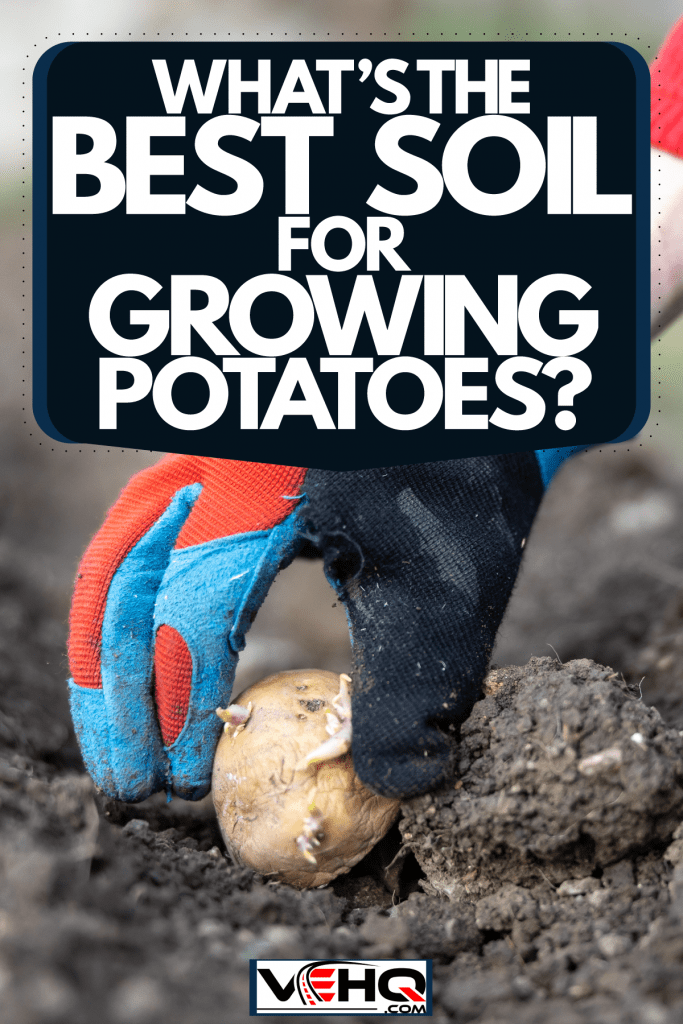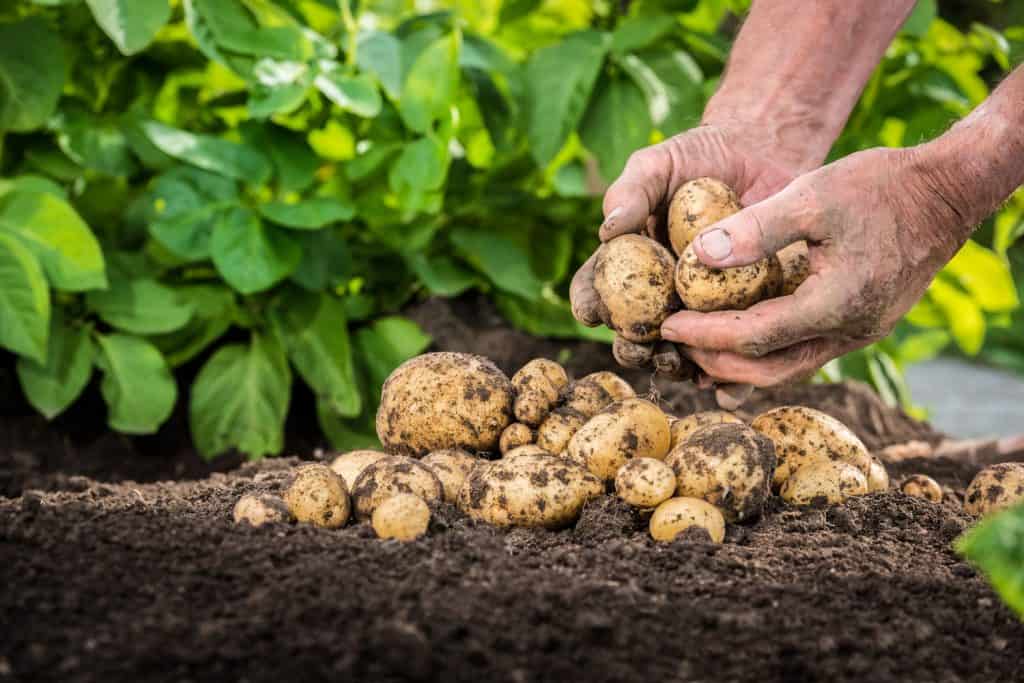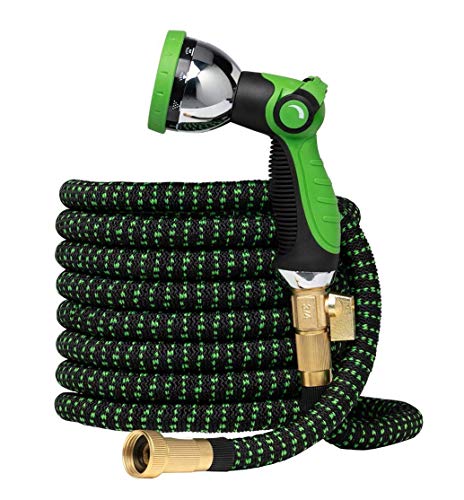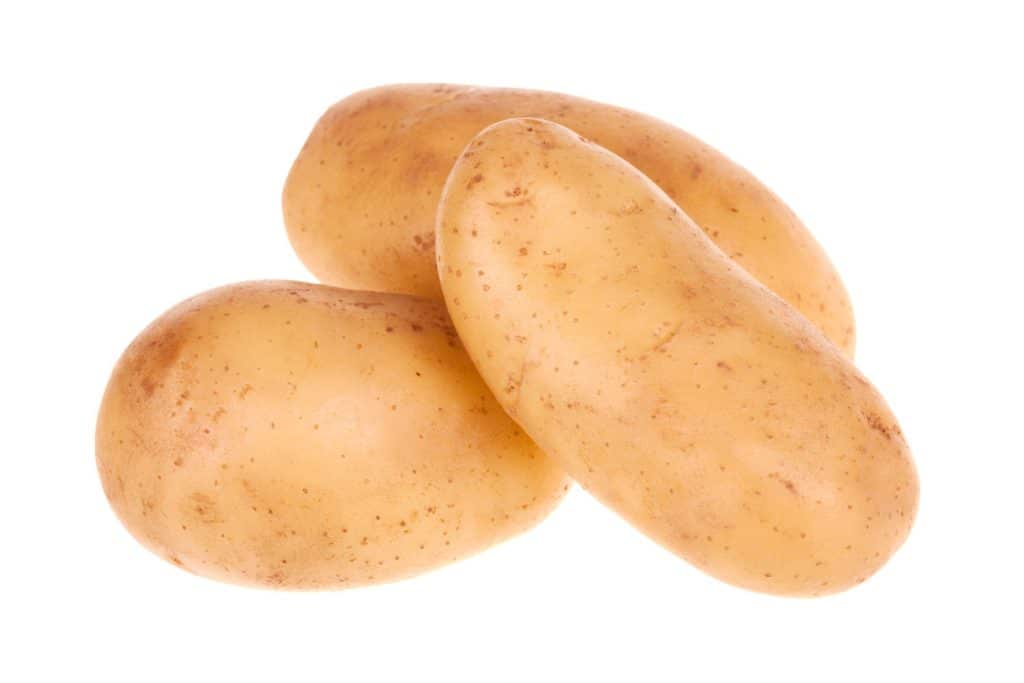Potatoes are one of the most versatile vegetables that you can grow and your garden. Knowing how to prepare the soil before planting your potato plants is essential to a full and healthy harvest. But what is the best soil for growing potatoes? We've done a bit of research on this topic, and in this post, we will share our findings with you.
Potato plants grow best in loose and well-drained soil. The potatoes' root temperature must stay warm in order for the vegetable's tubers to mature. It's also important that the soil isn't too moist, as this can cause the potato roots to rot or develop fungal issues. A good soil compost will also have the right amount of organic matter, a good pH, and sufficient drainage so that the soil can easily soak up water while simultaneously preventing dry rot.
Keeping potato plants' soil healthy can mean the difference between an abundant harvest and one with stunted or unhealthy crops. Everything from pH and hydration to sun exposure and fertilizers plays a key role in growing the best crop possible. Continue reading to learn more about the soil requirements of potato plants.

The Ideal Soil For Growing Potatoes

Moist and loose soil is vital in having a healthy potato harvest. However, if the soil is too loose, the potato roots may lose water too fast, making them unable to grow to their full potential. On the other hand, if the soil is too compact, it will make it difficult for the roots to drain water, and as a result, the potato plants will become hard, and their growth will be stunted.
The ideal pH for potato plants' soil is anywhere between 5.8 and 6.5, as it allows the potatoes to get the number of nutrients they need while preventing fungal diseases such as potato scab. It's important to test your soil weekly to ensure that it is healthy and free of diseases, as they can spread quickly to the entire crop. You can purchase soil testing kits at any local garden store or online.
Check out this soil testing kit on Amazon.
Mulch and Organic Matter
Once your potato plants are in the ground, it's essential to add mulch to them right away to get the nutrients they need to grow larger. You can add about three to four inches of mulch on top of the soil, but be sure that the potatoes are planted in a warm area before adding the mulch to the crops. Well-aged compost and organic matter can help to improve the quality of your soil.
If you plan to add organic matter to your soil, add no more than six to eight inches so that the soil doesn't dry out too quickly but will still drain water effectively. The additional compost can help feed the potatoes to get the additional nutrients that they need for healthy growth in their early stages. You can also use high-quality loom soil to your potato bait to help loosen up the soil and prevent compaction.
Watering
Potato plants do need water to thrive. However, the plants will need different amounts of water at different intervals to grow to their full potential. Typically, the potato plants will need anywhere from one to two inches of water weekly. This water can be provided manually or naturally by rain events. If you experience a period of heavy rain, it's important to scale back the watering of the potatoes for a week or two so that the soil can drain the excess water.
Read more about this watering hose on Amazon.
How do you prepare soil for growing potatoes?
Potato plants need highly fertile soil to reach their maximum growth potential. As these plants are an underground crop, most of their growing activities happen within the soil. This makes it necessary for the soil to be airy and light to allow room for growth and expansion. Let's take a look at the steps to prepare the soil for potato plants.
Step 1. Prepare the soil
Remember that it's best to sow your potato seeds once the winter frost has passed. After all, you don't want them to experience freezing cold temperatures, as it can cause the plants to die out before they bloom. To prepare the soil, start by digging a plot that's approximately 15 to 18 inches deep. This will give your potato plants enough room to grow and ensure that they have enough surrounding soil for effective drainage. If you spot any perennial weed roots in the soil, be sure to remove them.
Step 2. Add organic matter
Prepare and add any organic matter to your potato soil. Organic matter can help to improve the drainage and airflow of the soil. The organic matter should be no more than six to eight inches over the top of your soil. You can use well-rotted cow manure, mulch, or other biodegradable materials for the soil. Be sure to work the materials evenly over your soil and layer them with a garden fork.
Check out this garden fork on Amazon.
Step 3. Plant the trenches
Prepare your potato plant trenches using a shovel to make spacious and deep trenches on your potato bed. The trenches should be about eight inches deep and about 18 inches apart.
Step 4. Add additional feed
This is the time to add any additional feed to your potato soil. It can include things such as coffee grinds, eggshells, or commercial fertilizer. Be sure to measure the right amount of feed to avoid oversaturating the potatoes in the early stages.
How deep should you plant potatoes?
Potato plants should be planted anywhere from three to four inches deep into the soil. You'll also want to cover the plant with an additional two inches of soil or compost after the plant has been placed in the ground. Be sure to plant the potatoes at least 12 to 15 inches apart, with the rows spaced out at least three feet apart to allow for ample growth. If the potato plants become too crowded, their growth will be stunted, and they may develop fungal issues on their skin.
Do potatoes grow well in clay soil?
Generally, potatoes do not grow well in heavy clay soil, as it is too compact for the water in the soil to drain sufficiently. If you plan to use clay soil for your potato plants, be sure to add as much organic matter as possible such as calcium, lime, or other materials, to help loosen up the soil and create more aeration.
What's the best fertilizer for potatoes?
The best fertilizer for potato plants is one that has either equal amounts of nitrogen, phosphorus, and potassium or a low amount of nitrogen —fertilizers with an NPK of 10-10-10 or 5-10-5 or similar are ideal for potato plants. Let's look at a few fertilizers that make the cut.
Urban Farmer Organic Potato Fertilizer
This organic fertilizer is available in a three-pound bag and can feed up to 20% to 30% on plants for the growing season. The formula is GMO-free and contains blood meal, sulfate, gypsum, fishbone meal, and several other important nutrients and vitamins that can keep your potato plants disease-free.
Learn more about the Urban Farmer fertilizer on Amazon.
Scotts All-Purpose Flower and Vegetable Plant Food
If you are looking for a dependable all-purpose fertilizer for your potato plants, this potato food by Scotts is definitely worth considering. It can feed your plants for up to two months and is safe for baby plants. It has all of the nutrients and vitamins that your plants need for nourishment to make a full and healthy harvest.
Find out more about Scott's Flower and Vegetable Fertilizer on Amazon.
Joyful Dirt Fertilizer
Joyful Dirt fertilizer is one of the most dependable all-purpose fertilizers available for both indoor and outdoor plants. This product is all-natural and only contains organic ingredients. Joyful dirt fertilizer is made up of bio-tone microbes and slow-release and nutrients that can help your potatoes get the nutrients they need to thrive and grow.
Check out this fertilizer on Amazon.
Jobe’s Organics 9026 Fertilizer
If you're looking for an organic fertilizer for your potatoes, consider one of the most popular brands in the market. Jobe's products have been a mainstay in the garden industry for years and are known to be very dependable. This fertilizer is completely organic, which means that it contains no synthetic materials or harsh ingredients. It's a granular biozome fertilizer that can help your potatoes become resistant to garden pests, plant disease, drought, and other unfavorable conditions.
Check out this fertilizer on Amazon.
Wrapping Things Up
Potato plants can be grown in several months of the year, and it's best to keep an eye on the pH of the soil, especially in their early stages. Ensure that the soil stays loose, moist, and cool so that the potato plant's roots can adequately drain water and provide the potatoes with the nutrients they need to thrive.
Before you go, be sure to check out our other posts:








